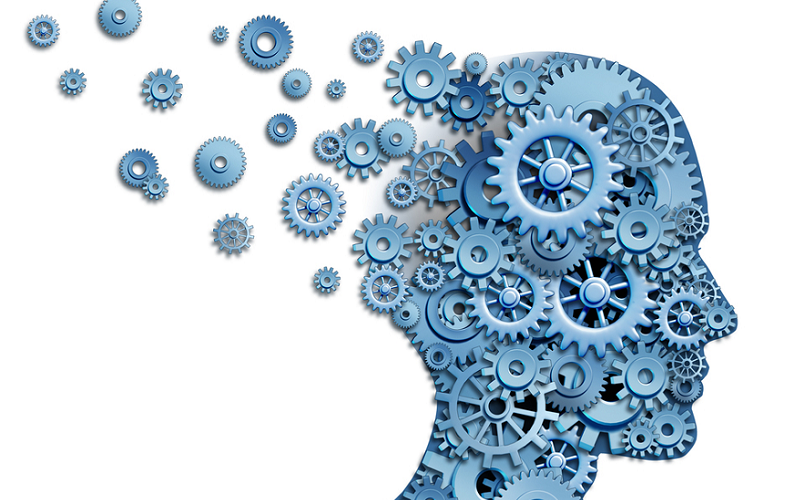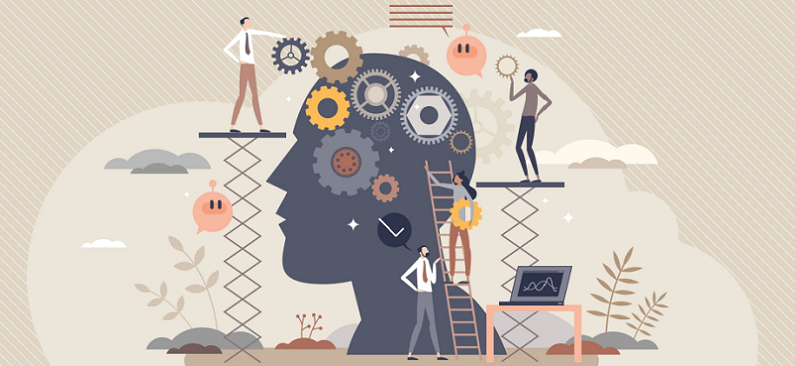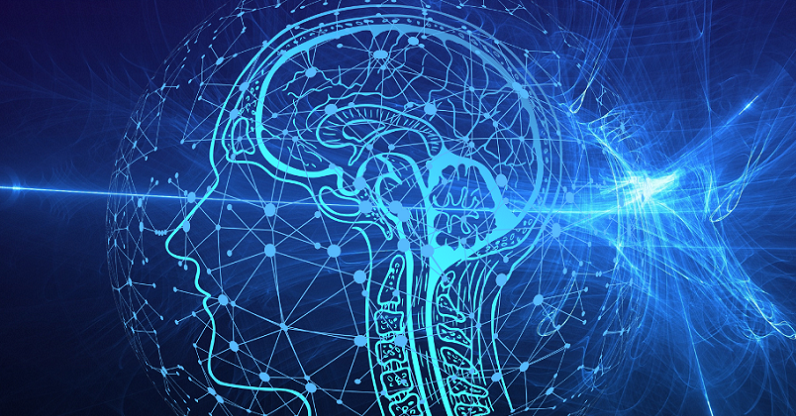
In today’s fast-paced world, the ability to adapt, learn, and innovate is more crucial than ever. This demands not just a wealth of knowledge but also the capability to reflect on and regulate one’s own cognitive processes. Enter the concept of strategic metacognition, a powerful tool in enhancing your cognitive toolkit. Metacognition, or thinking about one’s thinking, is a critical aspect of cognitive health that enables individuals to understand, control, and effectively use their cognitive abilities. It’s not just about what you know; it’s about understanding how you think and learn. Here we introduce practical strategies and nootropic supports to strengthen your metacognitive skills, enhancing overall cognitive function.
Contents
- Understanding Metacognition
- The Importance of Metacognition for Cognitive Goals
- Metacognition in the Context of Nootropics
- Strategic Approaches to Enhancing Metacognition
- Practical Tips for Incorporating Nootropics into Your Metacognitive Strategy
- References
Understanding Metacognition
In the journey toward enhancing our cognitive toolkit, a fundamental step is to move into the realm of metacognition. Often encapsulated in the phrase “thinking about thinking,” metacognition involves a higher level of awareness and control over one’s cognitive processes. It’s the reflective aspect of our minds that questions, adjusts, and plans our learning strategies, problem-solving methods, and decision-making processes. By understanding metacognition, we not only become students of our own minds but also gain the ability to tailor our cognitive approaches to better suit our goals and challenges.
The Concept of “Thinking About Thinking”
Metacognition is a fascinating area of cognitive science that explores our ability to monitor and regulate our own thought processes. It’s akin to having an internal supervisor that oversees how we learn, remember, and solve problems. This meta-level of thinking helps us to become more effective learners and problem solvers, by enabling us to step back and evaluate the efficiency of our cognitive strategies.
Components of Metacognition
Metacognition is often broken down into two primary components, each playing a crucial role in how we interact with information and tasks.
Metacognitive Knowledge
Metacognitive knowledge refers to our understanding and awareness of our own cognitive processes. This includes knowledge about our skills and limitations, the nature of different tasks, and the strategies that might be most effective in various situations. It’s about knowing what we know, how we learn best, and recognizing the gaps in our understanding or skills.
Metacognitive Regulation
Metacognitive regulation, on the other hand, involves the active management of our cognitive processes. This includes planning how to approach a learning task, monitoring our understanding and progress as we go, and evaluating the outcome of our efforts. It’s the adjustment dial of our cognitive engine, allowing us to fine-tune our strategies based on performance and feedback [1].
The Role of Metacognition in Learning and Problem-Solving
Understanding and applying metacognition transforms the way we learn and solve problems. It empowers us to approach tasks with a strategic mindset, choosing and adapting strategies that are best suited to the task at hand and our personal learning styles. This dynamic approach to cognition is particularly valuable in complex or unfamiliar situations, where the most effective strategy isn’t immediately apparent.
In learning contexts, metacognition encourages us to question our assumptions, reflect on our understanding, and seek out new ways to integrate and apply knowledge. In problem-solving scenarios, it allows us to navigate challenges more efficiently, recognizing when a particular approach is not working and pivoting to more effective strategies.

The Importance of Metacognition for Cognitive Goals
Having explored the foundational aspects of metacognition, it becomes clear that this self-reflective process is more than an academic curiosity—it’s a powerful lever for achieving a wide range of cognitive goals. From learning new skills to solving complex problems and making informed decisions, metacognition lies at the heart of our cognitive endeavors. Understanding its importance is the first step in harnessing its power for our cognitive development and health.
Enhancing Learning Efficiency
One of the primary benefits of metacognition is its ability to make learning more efficient. By understanding how we learn best, we can tailor our study strategies to fit our unique cognitive profiles, thus optimizing the learning process. Metacognition encourages active engagement with the material, allowing learners to monitor their understanding and adjust their strategies in real-time. This leads to deeper comprehension and more durable retention of information [2].
Improving Decision-Making Skills
Metacognition also plays a crucial role in decision-making. By fostering an awareness of our thought processes, it enables us to evaluate the validity of our assumptions and biases critically. This heightened self-awareness leads to more rational, informed decisions because we are better equipped to weigh the evidence, consider alternative viewpoints, and predict the consequences of our choices.
Fostering Creative Problem-Solving
In addition to enhancing learning efficiency and improving decision-making, metacognition is instrumental in fostering creative problem-solving. It allows individuals to step back and view problems from multiple perspectives, evaluate the effectiveness of various solutions, and adapt strategies in the face of new information or challenges. Metacognitive skills enable the identification of novel connections and the application of knowledge in innovative ways, which are key components of creativity.
Contributing to Emotional Regulation
Interestingly, metacognition extends its influence to emotional regulation. The ability to reflect on and understand our cognitive processes includes recognizing how our thoughts influence our emotions and behaviors. This awareness can lead to better management of emotional responses, particularly in challenging or stressful situations. By understanding the triggers and thought patterns that lead to emotional reactions, individuals can develop strategies to maintain emotional balance and resilience.
Metacognition in the Context of Nootropics
The journey through understanding and enhancing metacognition brings us to a compelling intersection: the role of nootropics in supporting metacognitive functions. Nootropics, often referred to as “smart drugs” or cognitive enhancers, are substances that can improve cognitive function, particularly executive functions, memory, creativity, or motivation, in healthy individuals. Their impact on cognitive health can extend into the metacognitive realm, offering unique opportunities to support and enhance the processes of thinking about thinking.
How Nootropics Can Support Metacognitive Functions
Nootropics work by modulating various neurotransmitters, neuroenzymes, and hormones involved in cognitive processes. This modulation can enhance neural efficiency, making it easier for the brain to perform cognitive tasks, including those requiring metacognitive oversight. For instance, substances that improve memory and focus can indirectly support metacognitive strategies by making it easier to monitor and regulate these cognitive processes [3].
Certain nootropics may enhance neural plasticity, the brain’s ability to form new connections and pathways. This increased plasticity can facilitate the development of metacognitive skills by making the brain more adaptable and capable of learning new strategies for thinking and learning.
The Interplay Between Brain Health Supplements and Cognitive Strategies
The relationship between nootropics and metacognition is not one-sided; it’s a dynamic interplay where each influences the other. On one hand, nootropics can provide the neural support necessary for engaging in metacognitive strategies effectively. On the other hand, applying metacognitive strategies can maximize the cognitive benefits derived from nootropics. For example, through metacognition, individuals can become more aware of the effects different nootropics have on their cognitive processes, enabling them to make informed decisions about which substances best support their cognitive goals.
This symbiotic relationship highlights the importance of a holistic approach to cognitive enhancement. By combining the physiological support provided by nootropics with the strategic application of metacognitive skills, individuals can create a powerful synergy that amplifies their cognitive capabilities.

Strategic Approaches to Enhancing Metacognition
After establishing the importance of metacognition and its interaction with nootropics, it’s vital to explore how one can actively enhance this crucial cognitive ability. Enhancing metacognition is not just about improving how we think; it’s about refining our awareness and control over our thinking processes. Through various strategic approaches, individuals can cultivate a more profound metacognitive awareness, leading to improved learning, problem-solving, and decision-making abilities.
Developing Self-Awareness
The cornerstone of metacognition is self-awareness. By becoming more aware of our thought processes, we can begin to monitor and regulate them more effectively.
Reflection Practices
Regular reflection is a powerful tool for developing self-awareness. This can involve taking time to consider how we’ve approached tasks, what strategies we used, what worked well, and what didn’t. Reflective practices can range from mental self-review to structured reflection, such as writing down thoughts and observations after completing tasks.
Journaling for Thought Clarification
Journaling extends the reflection process by providing a structured way to clarify thoughts, emotions, and behaviors. It can help individuals identify patterns in their thinking, including biases or recurring obstacles, and consider alternative strategies for future tasks [4].
Cultivating a Growth Mindset
Adopting a growth mindset is fundamental to enhancing metacognition. It involves believing that our abilities and intelligence can be developed with effort, learning, and persistence.
Embracing Challenges
Viewing challenges as opportunities to learn and grow rather than threats to avoid can significantly enhance metacognitive skills. This approach encourages proactive engagement with difficult tasks and a willingness to experiment with different strategies.
Learning from Mistakes
A growth mindset also entails recognizing mistakes as valuable learning opportunities. By analyzing errors and understanding why they occurred, individuals can adapt their strategies and avoid similar mistakes in the future.
Applying Metacognitive Strategies to Learning
Integrating specific metacognitive strategies into learning processes can greatly enhance efficiency and effectiveness.
Active Learning Techniques
Active learning involves engaging with the material through questioning, summarizing, and teaching others. These techniques encourage deeper processing of information and can improve the ability to monitor comprehension and adjust learning strategies as needed.
The Use of Mnemonics and Visualization
Mnemonic devices and visualization techniques can aid in the encoding and retrieval of information, making it easier to monitor what has been learned and identify areas needing further study.
Mindfulness and Meditation
Mindfulness and meditation practices can enhance metacognitive awareness by improving focus and attention.
Enhancing Focus and Attention
Regular mindfulness practice can help individuals become more aware of their moment-to-moment thoughts and feelings, improving the ability to focus and maintain attention on cognitive tasks.
Reducing Cognitive Load
Meditation can also reduce cognitive load, making it easier to engage in metacognitive reflection and strategy adjustment without becoming overwhelmed by information.
Practical Tips for Incorporating Nootropics into Your Metacognitive Strategy
Integrating nootropics into your cognitive and metacognitive enhancement strategy can be a game-changer, offering the neural support needed for optimal mental performance. However, navigating the world of nootropics can be complex, given the variety of substances available and their varied effects on cognitive function. Here, we offer practical tips for those looking to incorporate nootropics into their metacognitive strategies, ensuring an informed and effective approach to cognitive enhancement.
Identifying the Right Nootropics for Cognitive Enhancement
The first step in incorporating nootropics into your metacognitive strategy is to identify which nootropics or cognitive enhancers align with your specific cognitive goals and needs.
Research and Understand Different Nootropics
Begin by conducting thorough research on the different types of nootropics available, focusing on their intended effects, potential side effects, and the evidence supporting their use. Resources such as scientific journals, reputable websites, and forums can offer valuable insights [5].
Consider Your Cognitive Goals
Reflect on your cognitive goals and challenges. Are you looking to improve memory, enhance focus, or boost learning efficiency? Different nootropics have different strengths, so aligning them with your specific goals is crucial.
Balancing Natural and Synthetic Nootropics
The choice between natural and synthetic nootropics is a key consideration, with each category offering its own set of benefits and considerations.
Exploring Natural Nootropics
Natural nootropics, such as certain herbs and supplements, often have a long history of use and a profile that may include fewer side effects. They can be a good starting point for those new to nootropics.
Understanding Synthetic Nootropics
Synthetic nootropics may offer more potent effects and targeted action. However, they also come with a higher risk of side effects. Informed decision-making and, if possible, consultation with a healthcare provider are advisable.
Creating a Personalized Nootropic Regimen for Optimal Mental Performance
Crafting a personalized nootropic regimen involves more than selecting the right substances; it requires careful planning and monitoring.
Start Low and Go Slow
When introducing new nootropics to your regimen, start with lower doses and gradually increase as needed. This approach allows you to monitor your body’s response and adjust accordingly.
Monitoring and Adjusting Your Regimen
Keep a journal to track the effects of nootropics on your cognitive and metacognitive functions. Note any improvements, side effects, or other observations. This data can help you fine-tune your regimen over time.
Consider Cycling Nootropics
To avoid tolerance and maintain the effectiveness of nootropics, consider cycling them (i.e., taking breaks or rotating between different nootropics). This strategy can help maintain their cognitive enhancing effects.
References
[1] Using Metacognitive Strategies to Support Student Self-Regulation and Empowerment
[2] Metacognitive Strategies (How People Learn)
[3] Metacognitive Strategies
[4] Getting started with Metacognition
[5] Metacognitive Strategies and Development of Critical Thinking in Higher Education
